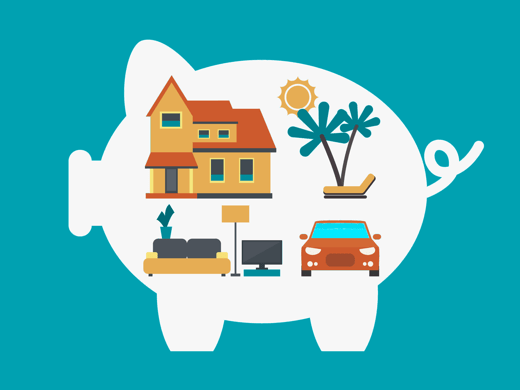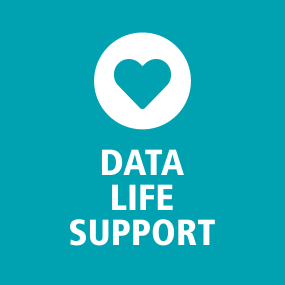Purchasing Power
for Nigeria
Purchasing Power
for Nigeria
Purchasing Power describes the disposable income of populated areas across Nigeria. It is a key indicator for sound location and sales territory planning.

Purchasing Power for Nigeria
This Purchasing Power data product describes the disposable income of households (before taxes) in populated areas within Nigeria and an extensive range of other countries. It is an important indicator of consumer potential and a key planning tool for optimising market location and understanding sales territories. This product allows you to explore regional markets with increased precision. Consistent and comparable data, with seamless transitions across borders, make this product ideal for international projects.
Purchasing Power for Nigeria can be purchased on its own or bundled with GIS polygon data for administrative regions, postcodes and small areas. This effective combination will allow you to perform enlightening analysis supported by stunning visualisations.
 Nigeria – Local Government Areas
Nigeria – Local Government Areas
Product details
| Purchasing Power for Nigeria | |||
|---|---|---|---|
| Administrative | Postcode | Small Area | |
| Available | |||
| Region Type | Local Government Areas | ||
| Number of Regions | 774 | ||
| Average Population/Region | 270,000 | ||
| Additional data variables available (described below): | |||
| Retail Spend1 | |||
| Retail Turnover12 | |||
| Retail Centrality123 | |||
| Consumer Spend by Product Groups1 | |||
1 Includes population data
2 Only administrative municipalities with 10,000 and more inhabitants
3 Includes retail spend and retail turnover
Additional variables
Please see the table above for availability of the following additional variables.
Retail spend
Retail spend refers to the potential share for retailers of the purchasing power of households within a given populated area. It is calculated as general purchasing power, less fixed expenditure. High quality, proven retail spend data is available on a municipality, postcode and small area basis.
Retail turnover
Retail turnover refers to the turnover of local retail trade. In contrast to purchasing power and retail spend, retail turnover quantifies purchases at the consumers’ place of expenditure. High quality, proven retail turnover is available on a municipality, postcode and small area basis.
Retail centrality index
The retail centrality index describes the capacity of a given area to attach the retail spend of its own population, as well as incoming shoppers from other areas, to the local retail trade. Cities with a high ‘shopping appeal’ have a centrality index of over 100. This is because they attract more shoppers and retail spend from surrounding areas than they emit in return. The retail centrality index is available at municipality and postcode code level.
Consumer spend by product groups
Consumer spend by product group quantifies the expenditure by consumers on specific groups of goods or services.
Whilst purchasing power is the most commonly used indicator for a region’s potential, it is not necessarily the most appropriate planning tool for all goods and services, as for some, patterns of consumer behaviour do not relate exclusively to disposable income. In order to respond to the nuances of the market, the general purchasing power values have been enhanced and recalculated based on consumer spend for twenty product categories.
Product categories include: food and non-alcoholic beverages; alcoholic beverages, tobacco, clothing, footwear, furniture & furnishings (carpets and other floor coverings), household textiles, household appliances, glassware (inc. tableware & household utensils), tools and equipment for house and garden, routine household maintenance, medical products, appliances and equipment, consumer electronics (inc. photographic and IT equipment), durables for recreation and culture, toys and games (inc. hobby, sport, garden, pets), recreational and cultural services, newspapers (inc. books and stationery), catering services, personal care and jewellery (inc. clocks, watches and other personal effects).
Looking beyond Nigeria? Purchasing Power data is available for a wide range of countries…
Data formats & delivery
Purchasing Power for Nigeria is available in many popular GIS formats, including:
- Esri Shapefile
- Esri File GeoDatabase
- MapInfo TAB (Extended)
All data products are delivered using our secure data delivery platform, Europa Data Vault.

Related products for Nigeria
Extend your market insight into Nigeria with these compatible add-on products. Ask about special pricing for map data bundles.
Regions & Boundaries
Gain a deeper understanding of geography within a country with robust map data for location analysis and visualisation.
Demographics
Get to know your audience in terms of number of households, population figures by sex and age band plus the number of unemployed.
Free data life support
All data products supplied by Europa Technologies include free, world-class, lifetime support.
Got a technical issue or licensing question? No problem – we’re just a call or an e-mail away.
Arrange your digital map licensing through us with the assurance of great value from your data investment.
How can we help you?
Ask an expert…
Do get in touch if you would like more details about Purchasing Power for Nigeria (technical, licensing, pricing, etc.) or would like to arrange a personalised demo. Our product specialists will be happy to provide you with a free consultation.


 Nigeria – Local Government Areas
Nigeria – Local Government Areas

